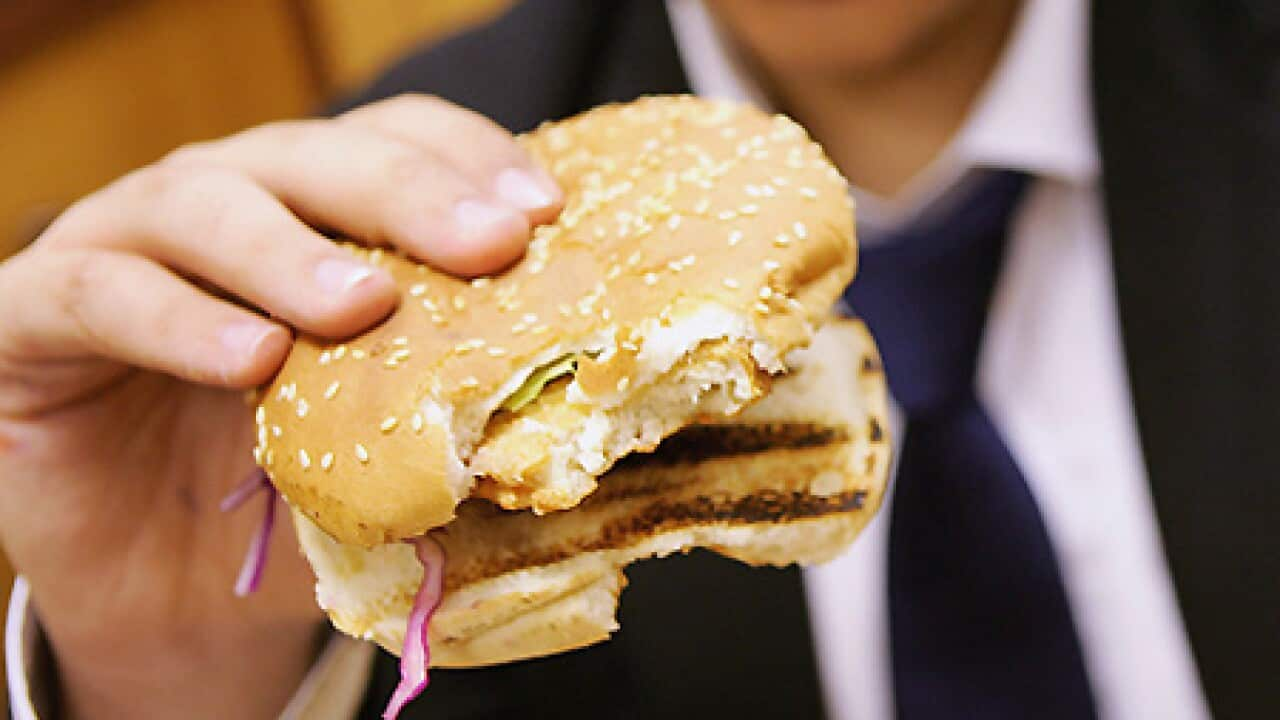The research, based on lab animals, bolsters long-standing suspicions that addiction to pleasure stems from overstimulus of a key reward mechanism in the brain.
Publishing online in the journal Nature Neuroscience, scientists at the Scripps Research Institute in Florida fed rats high-fat, high-calorie treats - bacon, sausage, cheesecake and so on - and watched the rodents bulk out dramatically.
The junk-food rats gobbled down twice as many calories as "control" rodents fed on normal chow.
"When we removed the junk food and tried to put them on a nutritious diet - what we called the 'salad bar option' - they simply refused to eat," said Paul Kenny, an associate professor.
"The change in their diet preference was so great that they basically starved themselves for two weeks after they were cut off from junk food."
'Feel-good' brain chemicals
Even when the scientists threatened the rats with an electric shock, the animals continued to overeat, a clear sign of uncontrolled behaviour.
Having shown that obese rats were addicted, the next step was to explore how this happened in the brain.
Kenny and graduate student Paul Johnson focussed on a docking point, or receptor, on the surface of neurons that binds to a "feel-good" brain chemical called dopamine.
Dopamine is released by pleasurable experiences such as sex, food and narcotics.
Previous research found that among cocaine users, the brain becomes flooded with dopamine and overstimulates the so-called dopamine 2 receptors (D2Rs).
The overstimulation causes the body to adapt by decreasing the activity of the D2Rs.
Worsening 'reward response'
As a result, there is a progressively worsening "reward response," or uptake of the pleasure-giving chemical in brain cells.
The cocaine user needs more and more frequent stimulation from the drug to avoid entering into a persistent state of negative reward - in other words, he quickly goes on the slippery slope from casual to compulsive drug-taking.
Similar changes in the D2Rs occur in the food-addicted lab rats, the study found.
"These findings confirm what we and many others have suspected, that overconsumption of highly pleasurable food triggers addiction-like, neuroadaptive responses in brain reward circuitries, driving the development of compulsive eating," says Kenny.
"Common mechanisms may therefore underlie obesity and drug addiction."
The research has yet to be conducted among humans, but when it was unveiled in its early stages at a conference last October, it prompted nods of agreement from obese people who said they had always argued that bingeing on sweet or fatty foods was an addiction.
Share

